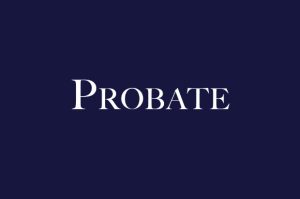A living trust is a written legal document through which your assets and properties are placed into a trust for your benefit, assets protections and also for transfer to designated beneficiaries of the estate at your death. Living trust are essential when planning your estate. Through trust, you can have anyone whom you solely desire manage and make financial decisions over your assets both while you are alive or dead as well as when you become mentally incapacitated.
Living trust also forms the bases of how your estates are shared or given to beneficiaries in Long Island. Having a legal document like the living trust that details what should happen to your estate upon your demise would ensures that your final wishes are met Making a decision between a Trust and a Will comes down to personal decisions on your estate plan. There are various types of trust, but majorly the irrevocable and revocable living trust, other types of trust are the special need trust or the spendthrift trust. These two however can still be placed into the irrevocable and revocable trust.
Living trust is different from a will
A living trust is different from will. This distinction can be seen in the way each documents are executed and their benefits. Living trust are legal documents through which you place your assets for protection and also easy transfer of estate to appointed beneficiary called the successor trustee. A will however, is a written legal documents with a plan to distribute your assets upon your death. A named executor as documented in the will oversee this process of reading and implementing the will.
While the living trust can be executed anytime the trust has been funded, the will only takes effect until after your death.
Another major advantage of living trust over will is that it prevents probate, therefore saving time and cost for any legal proceeding on wills.
Living Trust avoids Probate
One of the benefits of living trust in Long Island is that it avoids probate even while a valid and clearly written will still go through a court proceeding for your assets to be distributed to the beneficiaries according to your wishes. A revocable living trust doesn’t require probate because the assets has been placed into the trust before the death of the trust maker. Once the assets has been transferred into the trust they will not be considered part of your estate and will not be subject to probate.
With probate eliminated, distribution of your assets and implementation of the trust would take lesser time. Also, with a living trust, your wishes would be effectively carried out without contest from any party. A will on the other hand may still be contested by any party or affecting individual.
Living Trust prevents unwanted guardianship
In the process of creating a living trust, you name a trustee, who takes over making financial or medical decisions for you when you are unable to dos so. This trust is only implemented when you become incapacitated. A court proceeding would no longer be needed for establishing guardianship and appointing a legal guardian for you. Your trustee as stated in the living trust would step into this decision making duty of managing your estate and other affairs.
You get enough privacy and secrecy with living trust
Living Trust Avoid excessive taxes
This is another important reason for establishing a trust. Under the IRS law, the only trust that avoids estate taxes is the irrevocable living trust. The reason is that the property no longer belongs to the original trust maker.
Living trust ensures Legality and permanency
With irrevocable living trust, the transfer of ownership of an asset or possession can be done permanently. Also, the process of transfer of ownership of an estate is done legally, and the trust maker get to see that this is properly done.
Through trust, you can have anyone whom you solely desire manage and make financial decisions over your assets both while you are alive or dead as well as when you become mentally incapacitated.
Living trust is an essential estate plan document, you should have.









